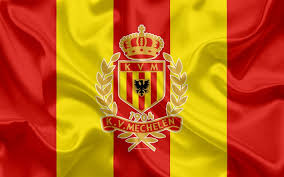No discussion about KV Mechelen FC is complete without exploring its golden era—a period marked by domestic dominance and unforgettable European nights that etched the club’s name onto the continental stage.
Domestic Success Leading KV Mechelen FC
The late 1980s represented a watershed moment for KV Mechelen FC, culminating years of steady progress SHBET.
Under the astute management of coaches like Aad de Mos, the club transformed from mid-table contenders into title challengers, capturing the imagination of Belgian football fans.
One of the key factors behind this meteoric rise was strategic player recruitment. By blending experienced internationals with gifted local talents, KV Mechelen FC assembled a balanced squad capable of executing sophisticated tactical plans. Their approach was characterized by attacking flair combined with defensive robustness, making them difficult opponents domestically.
Winning the Belgian Cup in 1987 didn’t just bring silverware; it injected belief and opened doors to European competitions. These achievements elevated the club’s profile nationally and set the stage for even greater exploits abroad.
Reflecting on this phase, one senses a perfect storm of right leadership, player synergy, and community backing—elements rarely aligned simultaneously but which propelled KV Mechelen FC into football folklore.
The Memorable European Campaigns
Perhaps the most defining chapter in KV Mechelen FC’s history was their astonishing European Cup Winners’ Cup triumph in 1988.
Entering the competition as relative underdogs, few expected them to progress far against established European giants. Yet each round showcased their quality and resilience.
Victories over the likes of Dinamo Bucharest and Atalanta highlighted their tactical discipline and mental fortitude. The pinnacle arrived in the final against Ajax Amsterdam, where KV Mechelen FC triumphed 1-0, thanks to Piet den Boer’s iconic goal. This victory stunned the continent and remains one of Belgian football’s proudest moments on the European stage.
Beyond the trophy, the campaign immortalized a group of players and staff who embodied the club’s fearless ethos. It demonstrated that well-structured teams with the right mentality could upset traditional hierarchies—an inspiring message for smaller clubs everywhere.
Personally, the 1988 run exemplifies football’s unpredictability and romance. It’s testament to how collective endeavor, clear vision, and unwavering belief can occasionally topple even the most illustrious adversaries.
Sustaining Momentum Post-Triumph
Post-1988, maintaining that dizzying high proved challenging for KV Mechelen FC.
While they continued to perform admirably—reaching latter stages of European competitions and competing for domestic titles—the demands of sustained excellence weighed heavily, especially given budgetary constraints.
Key players gradually departed for bigger clubs abroad, impacting squad cohesion and quality. Additionally, the increasing commercialization of football skewed resource distribution toward wealthier entities, making it harder for clubs like KV Mechelen FC to consistently punch above their weight.
Nonetheless, the club’s infrastructure and fanbase remained remarkably resilient. Rather than sliding into obscurity, they managed to stay relevant by focusing on youth development and smart talent acquisition. Their ability to bounce back from setbacks speaks volumes about the ingrained fighting spirit cultivated during earlier eras.
Looking back, this phase offers valuable insights into the lifecycle of football clubs—that success is often cyclical. The real test lies not only in reaching the summit but in adapting strategies to evolving competitive landscapes, something KV Mechelen FC achieved with admirable determination.
